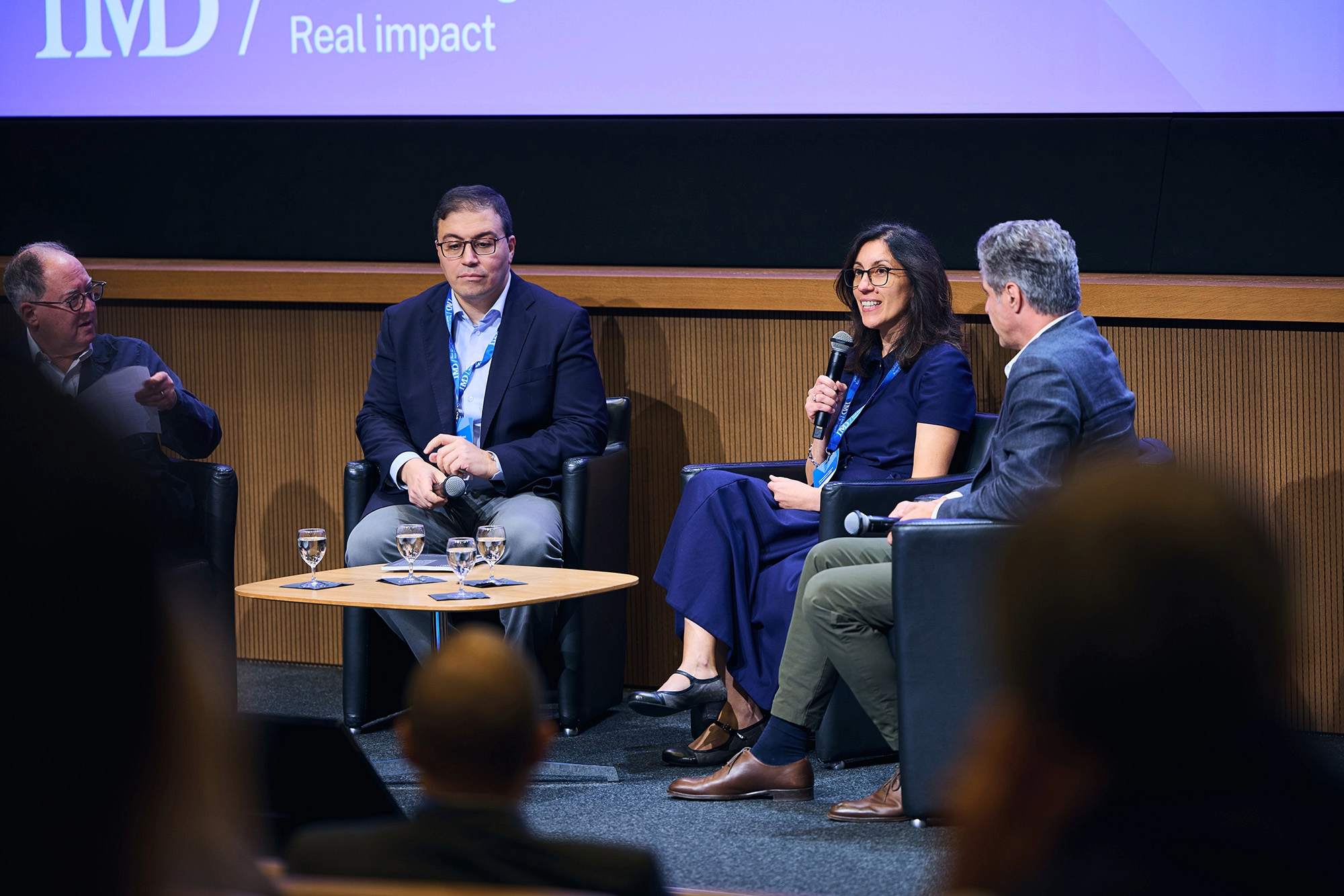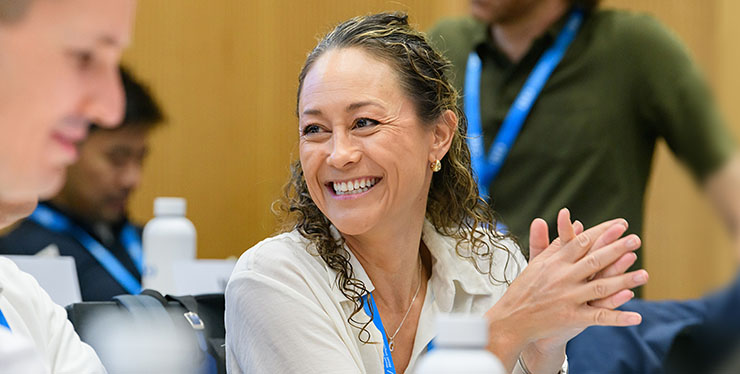IMD President David Bach opened this year’s International Alumni Symposium – on the theme of “How to Thrive in a Fractious World” – by reflecting on how recent geopolitical upheavals have upended many of the long-standing assumptions underpinning the global economy.
“Most of us have spent our careers in a more globalized world,” he noted, citing an environment defined by expanding trade, low and stable inflation, and little concern for security. “Today, we are in a very different environment — one that demands we all change as leaders.”
The tariff of unpredictability
In a conversation with World Economic Forum President and CEO Børge Brende, the pair discussed how growing global volatility and unpredictability are effectively acting as a “tariff” on business. Yet despite this uncertainty, Brende observed that the global economy has so far demonstrated remarkable resilience.
While acknowledging concerns about potential overvaluation in sectors such as cryptocurrencies and artificial intelligence, he noted that even speculative bubbles can spur lasting innovation – much as the dot-com boom ultimately paved the way for today’s digital economy.
Train your geopolitical muscle
Simon Evenett, Professor of Geopolitics and Strategy, opened Day Two by highlighting the importance for companies to adapt to geopolitical turbulence by redesigning their organizations for more volatile times. This means rethinking your firm’s purpose, developing the capabilities needed to thrive, and reassessing your risk appetite.
Rather than treating geopolitics as a crisis to be managed by consultants with “binders” of best practice, companies should focus on building medium-term resilience – like training for fitness, said participants on a panel looking at geopolitics in the boardroom.
“If you can’t foresee everything, you can train the muscle to react,” said Annette M. Schüller, Board Member at Ethics and Compliance Switzerland and previously Board Secretary at flavors and fragrance maker Givaudan, who emphasized the value of scenario planning for potential supply chain or production disruptions.
Learn to manage paradoxes
One theme emerging in the symposium was the intersection of geopolitics with other major forces reshaping business such as digital transformation and sustainability.
Vanina Farber, elea Professor of Social Innovation, led an interactive case discussion on The Tropical Landscapes Finance Facility (TLFF), a $95 million sustainability bond issued in 2018 to fund a sustainable natural rubber plantation in Indonesia.
Initially hailed as a model of sustainable finance, the project soon faced challenges, including allegations of greenwashing, community grievances, and questions about compliance with emerging sustainability standards. Alumni were tasked with playing the roles of different stakeholders in the project and figuring out how to respond.
“Executives are used to solving problems,” said Farber. “But paradoxes can’t be solved, they have to be managed.”
Meanwhile, Karl Schmedders, Professor of Finance, explored how shifting geopolitical and market dynamics are redefining the global energy landscape. “Despite the turmoil in geoeconomics there is a clear game plan that the current US administration is following. Everyone should learn about Project 25 and its guidance for geoeconomic policy,” said Schmedders.
Keep an eye on Chinese AI
Mark Greeven, Professor of Management Innovation and José Parra Moyano, Professor of Digital Strategy, emphasized how Chinese companies have rapidly developed a unique and competitive gen AI infrastructure that differs significantly from Western systems. Firms, like China’s DeepSeek, are engineering distinct AI systems designed for cost-efficiency, rapid deployment, and targeted applications.
“It took China about a year and a half to build several large language models, including foundational models, and get them approved. Now about half of China’s population are actively using large language models,” Greeven said. “The catch-up in this space has been super-fast.”
The golden age of globalization is over. Now what?
For 25 years, business logic trumped politics, noted Gideon Rachman Chief Foreign Affairs Commentator at the Financial Times, but that period has come to a close.
While globalization is unlikely to breakdown completely, he said, the days of invest anywhere and assume stability are gone. Businesses must now continually justify investments abroad and safeguard critical technologies, even when outcomes defy economic logic—as with TSMC’s Arizona expansion.
This sentiment was echoed by a panel of alumni leaders who discussed how geopolitical instability has transformed from background noise to a primary strategic consideration. This is forcing companies to abandon stability assumptions and build resilience through diversification, partnerships, and geographic strategy shifts.
Leading through disruption
Disruption, though uncomfortable, is the only way we can transform ourselves, our teams, and our organizations to drive innovation and transformation, said Alyson Meister, Professor of Leadership and Organizational Behavior and Dean of Degree Programs in the closing session of this year’s symposium.
Meister interviewed Guilherme Loureiro, Regional CEO Walmart Canada, Chile, Mexico & Central America, on how he transformed the company from bricks and mortar stores to an omni-channel retailer.
Driving transformation means understanding the customer journey, connecting the transformation to purpose to motivate employees, and communicating with clarity. It also meant realizing that to achieve transformation for his organization he had to undergo a personal transformation.
“My desire to transform the company was bigger than my ego,” Loureiro said. “For the first time in my life, I had to accept that I had to change.”
Asked what three qualities, leaders need today, Loureiro said: vision, care, and an ability to learn. “In the past leaders use to create certainty, the leader today has to give clarity.”



